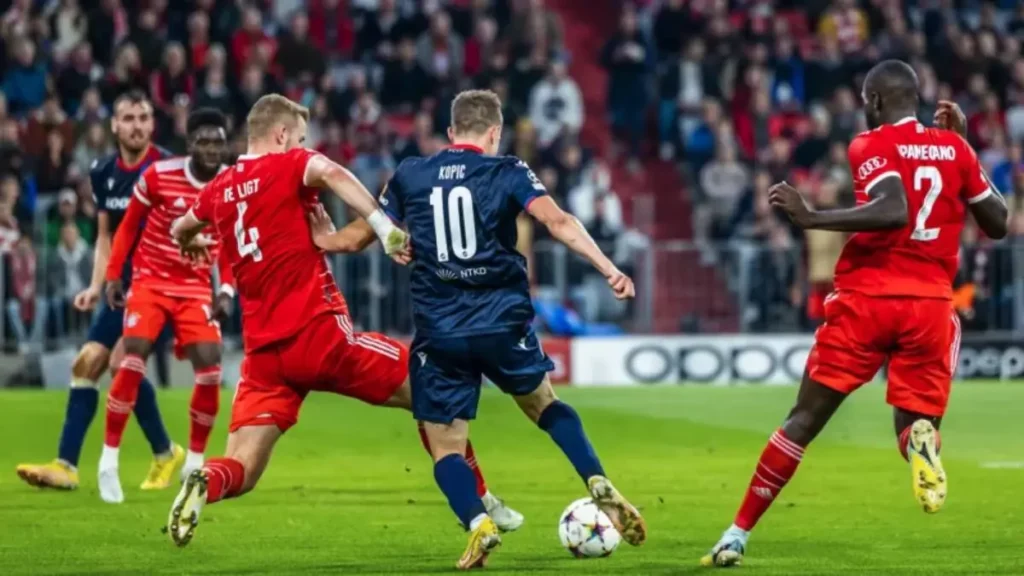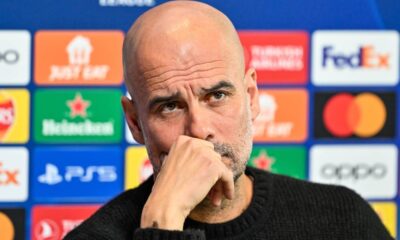Bundesliga
De Ligt as damaged goods? Oh, no! Why does Bayern want to sell him to Manchester United?
Matthijs de Ligt and Manchester United. This connection from five years ago has been revived. The Dutch central defender is for sale. Why don’t Bayern Munich want him? And is the Hag buying broken goods? The numbers are clear!

Matthijs de Ligt and Manchester United. This connection from five years ago has been revived. The Dutch central defender is for sale. Why don’t Bayern Munich want him? And is the Hag buying broken goods? The numbers are clear!
- Matthijs de Ligt and Manchester United, this connection will probably come true in the summer
- De Ligt certainly didn’t stagnate in Munich!
- So why is Bayern Munich willing to sell the young stopper?
Matthijs de Ligt and Manchester United. No, it’s not 2019. This connection rules the opening of the summer transfer period, the 2024 edition. The historically youngest Ajax captain is once again in the crosshairs of the club from the red part of Manchester.
Five years ago, Juventus of Turin won the hunt for De Ligt. The price tag then? 85 million euros. Three years have passed and the 36-time Serie A champion sold the golden boy of 2018 at a loss. 67 million went from Munich to Italy. Another two years have passed and the Munichians are set to receive even less compensation in exchange for De Ligt’s services.
Is Manchester United buying broken goods? And why is Bayern Munich more than willing to part with Matthijs de Ligt? Let’s put aside impressions and look for the answer in hard numbers.
Stagnation in Munich? On the contrary!
Less than 1,400 league minutes across 22 games gives an excuse to speculate about the Dutch stopper’s contribution to Bayern’s defensive ranks. But let’s rather look for the cause of the limited minutes in the quartet of injuries that caught up with the 24-year-old defender during the course of last season.
De Ligt is not an unfamiliar figure to the club’s doctors. But despite recurring minor problems, last season was the first time he didn’t cross the 2,000 minutes played mark.
Nor can we speak negatively about the performance. Has the number of tackles dropped? Sure. Under Nagelsmann, the more active stopper, recording 1.2 slips per 90 minutes, managed only 1.0 in the same time unit under the more pragmatic Tuchel. But the sum of defensive actions (slips + interceptions) increased. This was due to the increase in the number of interceptions from 0.9 to 1.2.
Instead of questions about De Ligt’s form, we can talk about tactical versatility, the ability to adapt. Being valid and reliable in differently operating defensive waves.
It is the ability to adapt, or rather the lack of it, that is often cited as an argument to explain the willingness of the Sabener Strasse leaders to part with the young defender. Specific doubts are directed towards De Ligt’s play on the ball, referring to the style of play presented by Munich’s new coach, Vincent Kompany.
Matthijs de Ligt, admired at Ajax for his passing, has developed a reputation over the years as a rather old-fashioned defender. This is even though his contribution in the construction of the attack has reached his career high in Munich so far.
The number of total passes has increased, as one would probably expect after a move to the south-east of Germany. The previous ceiling of 65 passes in a complete game was broken by recording 71 passes under Nagelsmann, and now again by contributing 73 passes under Tuchel. Meanwhile, the number of short passes remained virtually unchanged. On the other hand, the number of medium-long passes increased noticeably.
The number of passes into the final third and progressive passes (longer than 10 yards and all passes into the opponent’s crease, while not counting passes 40% of the field, measured from the own goal) increased significantly.
De Ligt found teammates “in the defensive third” of the opponent 7 times per game last season. The previous high was 5.8… a year earlier in Munich. He recorded 6.4 progressive passes per game last season. Also a career high.
All this while maintaining his traditional success rate of over 90%. One might think that’s enough to shake off the “old-fashioned defenseman” headline.
There are a few reasons to be concerned. Like the near-record low success rate of contesting opposing dribblers or the career-low percentage of aerial duels won. But the last 12 or 24 months have been far from stagnant for Matthijs de Ligt. On the contrary, it could be argued that it was only in Munich that he lived up to the expectations he raised when he led Ajax to the Champions League semi-finals against Tottenham.
So why does Bayern want to sell him?
Why would Bayern get rid of such a player? The answer presents itself. Just look around at who else the Bavarians have put on display. Kingsley Coman, Leon Goretzka, Serge Gnabry, Joshua Kimmich. All players who have been linked with a possible departure from the club. All players who, according to fbref, are taking home more than Matthijs de Ligt. The Dutch stopper himself is the highest paid defender at the club according to the same website.
To add to the information, Max Eberl, Bayern Munich’s new sporting director, has been tasked by the board of directors to reduce the wage bill by 20% by the end of 2025. SportBild reporter Tobi Altschäffl contributed to the debate with this information.
The sale of Matthijs de Ligt in particular could mark a big step towards this goal. Is taking De Ligt’s salary off the books worth the loss Bayern would make on the transfer fee? Not necessarily on its own.
But De Ligt’s salary could mean complications during contract negotiations for other defenders. By comparison, Dayot Upamecano, just a year older, has a salary of €10 million according to fbref, while Matthijs de Ligt earns €16 million a year at Bayern.
The French international’s contract lasts for the next two seasons. Negotiations on his possible extension can thus be expected next spring. And without De Ligt at the club, the notional salary benchmark would not be the Dutchman’s 16 million, but rather the 12 million figure that Min-jae Kim is reportedly set to earn.
With the demand for a reduction in the salary cap following the rampant contract extensions of FCB wingers following the costly involvement of Leroy Sané, it is an understandable decision on the part of the Bavarians. Mistakes are paid for and lessons must be learned from the past. Bayern’s sale of De Ligt delivers on both of these rhetoric.
Sources: SportBild, BILD, fbref.com










